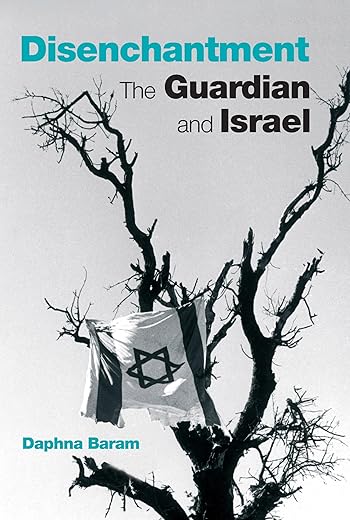
Original price was: €99.00.€36.00Current price is: €36.00.
Disenchantment by Author’s Name Price comparison
Disenchantment by Author’s Name Price History
Disenchantment by Author’s Name Description
Disenchantment by Author’s Name: A Captivating Read
Discover the enchanting world of “Disenchantment” by Author’s Name, a thought-provoking journey that captivates readers through its rich narrative and profound themes. This book, published by Random House, has garnered significant attention since its release on January 1, 2008. Dive into this 304-page paperback that offers not just a story but an experience. Whether you’re searching for the “Disenchantment book price” or curious about its “Disenchantment reviews”, you’re in the right place!
Key Features and Benefits
- Publisher: Random House (2Rev Ed edition, January 1, 2008)
- Language: English
- Format: Paperback, 304 pages
- ISBN: ISBN-10: 0852650906, ISBN-13: 978-0852650905
- Weight: 1.15 pounds
- Dimensions: 6.26 x 0.98 x 9.33 inches
“Disenchantment” is perfect for those seeking literary depth and emotional resonance. The paperback format ensures it’s both portable and durable, making it an ideal choice for avid readers on the go. Its dimensions suit any bookshelf, creating a seamless addition to your collection.
Pricing Comparison Across Suppliers
Currently, the price for “Disenchantment” varies across different retailers, providing you with options to find the best deal. On platforms such as Amazon, you can find competitive pricing backed by user reviews. As of this month, prices range from $14.99 to $22.99, showing the demand and popularity of the book. Utilize our price comparison feature to ensure you get the best price!
Price Trend Insights
Our 6-month price history chart indicates an intriguing trend; prices have seen slight fluctuations, typically peaking during festive seasons or promotional events. Understanding these trends can help you decide the optimal time to purchase.”Beware the usual buying periods, as they might see prices climbing higher due to increased demand.
Customer Reviews: What Are People Saying?
Readers have shared their thoughts on “Disenchantment”, revealing both its strengths and weaknesses:
- Positive Feedback: Many readers have praised the author’s compelling narrative style and the book’s ability to resonate emotionally. The vivid characters and intricate plots have left readers enthralled from beginning to end.
- Criticism: Some reviews noted pacing issues in specific sections, suggesting that a few moments felt drawn out. However, the overall consensus applauds the book for its depth and thought-provoking themes.
Explore Unboxing and Review Videos
For further insights, check out related YouTube videos showcasing unboxings and detailed reviews of “Disenchantment”. These visuals offer a sneak peek into the book’s content and help you gauge whether it aligns with your reading preferences. Fans often express their excitement, highlighting key themes and memorable quotes, enriching your anticipation of reading!
Why You Should Read “Disenchantment”
Choosing to read “Disenchantment” not only opens a window into the author’s imaginative world but also invites you to question and reflect upon various life aspects. Engaging with such rich literature enhances your reading experience, fostering critical thinking and empathy. Whether you’re a returning fan of the author or diving into their work for the first time, this book promises to be a valuable addition to your library.
Don’t wait any longer to immerse yourself in this remarkable narrative. Check current “Disenchantment prices” now and seize the chance to own this compelling title!
Compare Prices Now!
Disenchantment by Author’s Name Specification
Specification: Disenchantment by Author’s Name
|
Disenchantment by Author’s Name Reviews (2)
2 reviews for Disenchantment by Author’s Name
Only logged in customers who have purchased this product may leave a review.











Andy Simons –
There are some good books on the Guardian, with two outstanding novels being Malcolm Muggeridge’s “Picture Palace” (1934) and Annalena McAfee’s “The Spoiler” (2011). For those interested in how the Guardian has struggled to navigate between the Zionist project and valid criticism of it, this is the right book. The Guardian was never as Zionist as the New Statesman (see Khalid Kishtainy’s important work, “The New Statesman and the Middle East” (Beirut : Palestine Research Center, 1972). Make no mistake, the newspaper’s history is full of support and the leader writer Harry Sacher and Weizmann protege is spotlighted here ~ he essentially wrote the Balfour Declaration in snappy but intentionally vague language, although that fact isn’t in this book. Also, Michael Adams (“Publish it not…The Middle East Cover-Up,” 1975 & 2006) is analysed here and his editorial problems are deemed to have caused by stylistic reasons, rather than for his reporting of the truth. And Jonathan Freedland is portrayed as a softly reasonable go-between, somehow representing the ‘Jewish community’ to the paper; I don’t happen to view him kindly but it doesn’t detract from the book’s importance. As the author states, ” a majority in the Jewish community wants to be endorsed by the liberal media, and is willing to take a liberal stand on just about everything except Israel.” There’s much historical newsbeat ground to be covered in this 2004 book, but as you trod you’ll learn lots and it’s still relevant today.
Jill Malter –
I used to be an avid reader of the Guardian (back then it was the Manchester Guardian). And this newspaper has gone way downhill from the days when it featured excellent reporting and a liberal point of view in its editorials.
I’m not going to bother to argue the issue of whether the Guardian is anti-Semitic or not. Daphna Baram asks that question in this book, and says it is not. Well, what I think does not matter much, but she’s wrong. The Guardian is a clear participant in a gratuitous war against the Jews, and especially against Israel. It is anti-Semitic whether I admit it or not. If I, or anyone else, were to consistently express the same views about Israel that we consistently see in the Guardian, we’d be called anti-Semites, for good reason. If you wish, you can look at plenty of books (as well as the Guardian itself) to see specific substantiation of what I’m saying and decide for yourself whether Baram is right or wrong.
Baram makes one excuse after another for the Guardian. Some of them are interesting. She says that the Guardian did start to change its stance during the Jewish revolt against British rule which eventually drove the British out of the place. And she traces some further steps that the Guardian took, all of which she blames on Israel! We do discover some places where the Guardian went further than it had gone in the past, such as when it published two full chapters of a malicious book by Norman Finkelstein.
Yes, the Guardian has gotten worse, much worse. And Baram’s book can’t make it all better. As a matter of fact, I had a very tough time getting a copy of the book. It took me quite a while to acquire it! Anyway, now I finally have a copy and I’ve finally read it! I think it is interesting to read, but only because of my specific interest in the etiology, nature, and consequences of anti-Zionist untruths.
Baram is quick to blame the Guardian’s problems with its stance on Israel not on the Guardian itself, nor on an unjustifiable obsession with Israel, but on those who have the nerve to complain about it! Yes, that would make people such as me the problem! Does anyone really think that if people such as me merely stop talking about the Middle East, there won’t be any problems there any more?
Baram also complains that the Guardian keeps getting falsely accused. After all, she implies, it doesn’t mess up facts. It’s honest. The problem is that, at worst, it just does not like Israel!
Well, yes, the Guardian doesn’t like Israel. And that dislike goes far enough to make it display incredible bias, come up with misleading articles, and ignore facts it does not like. Does it go so far as to come up with outright misinformation? Of course it does, and some of that misinformation is pretty serious. On the other hand, the, um, “dislike” of Israel appears to me as something more like perpetual demonization of Israel, giving the impression that Israel is a weird nation that does things that have little or nothing to do with logic or motives.
I was puzzled by Baram’s boast that the Guardian did not call the attack on Jenin a massacre. Yes, some of the media were even worse than the Guardian (for a change) on this one topic, but so what?
Some former writers for the Guardian have commented on the Guardian’s problems with Israel, including Melanie Phillips and Julie Burchill. In this book, Baram admits that Jonathan Freedland, who (as far as I know) still writes for the Guardian has mentioned that the Guardian does have a couple of problems, such as appearing to suggest “that the Jewish state is an illegitimate entity,” or maybe even appearing to insinuate “that Israel is somehow responsible for all the world’s problems.” Freedland also pointed out that most Jews see Israel as “a tiny state with 6 million citizens, surrounded by 22 hostile Arab states.” Well, I can see why! Israel is a tiny state, a land-poor one at that, and it is indeed surrounded by a hostile Arab world. That Arab Empire is around 5,500,000 square miles, while Israel, even including all of the West Bank, all of Gaza, all of the Golan, and all of Jerusalem, is only 11,000 square miles, 500 times less.
Baram says that the notion that Israel is a tiny nation surrounded by 22 hostile Arab states is “outdated.” I think that is a very unfortunate choice of words on her part, given the Arab world’s population and resources.
Perhaps it is true that decades ago, the Guardian wanted to save the Jews (later the Israelis) from the Arabs. And that it soon wanted to “save Israel from itself.” And perhaps by now it wants to, um, save the Arabs (or maybe even the world) from Israel. In my opinion, had the Guardian taken a political stance that it could defend, obeyed journalistic standards, and had watched its language, it could have maintained much of its reputation. But it didn’t. The Guardian correspondent, Suzanne Goldenberg, won (according to the director of the Israeli government press office, Danny Seaman) “the complete disdain and contempt of the Israeli authorities.” Baram does not even bother to take Seaman’s comment seriously but simply dismisses it. Once again, she’s wrong to do so.
Well, enough of this book.